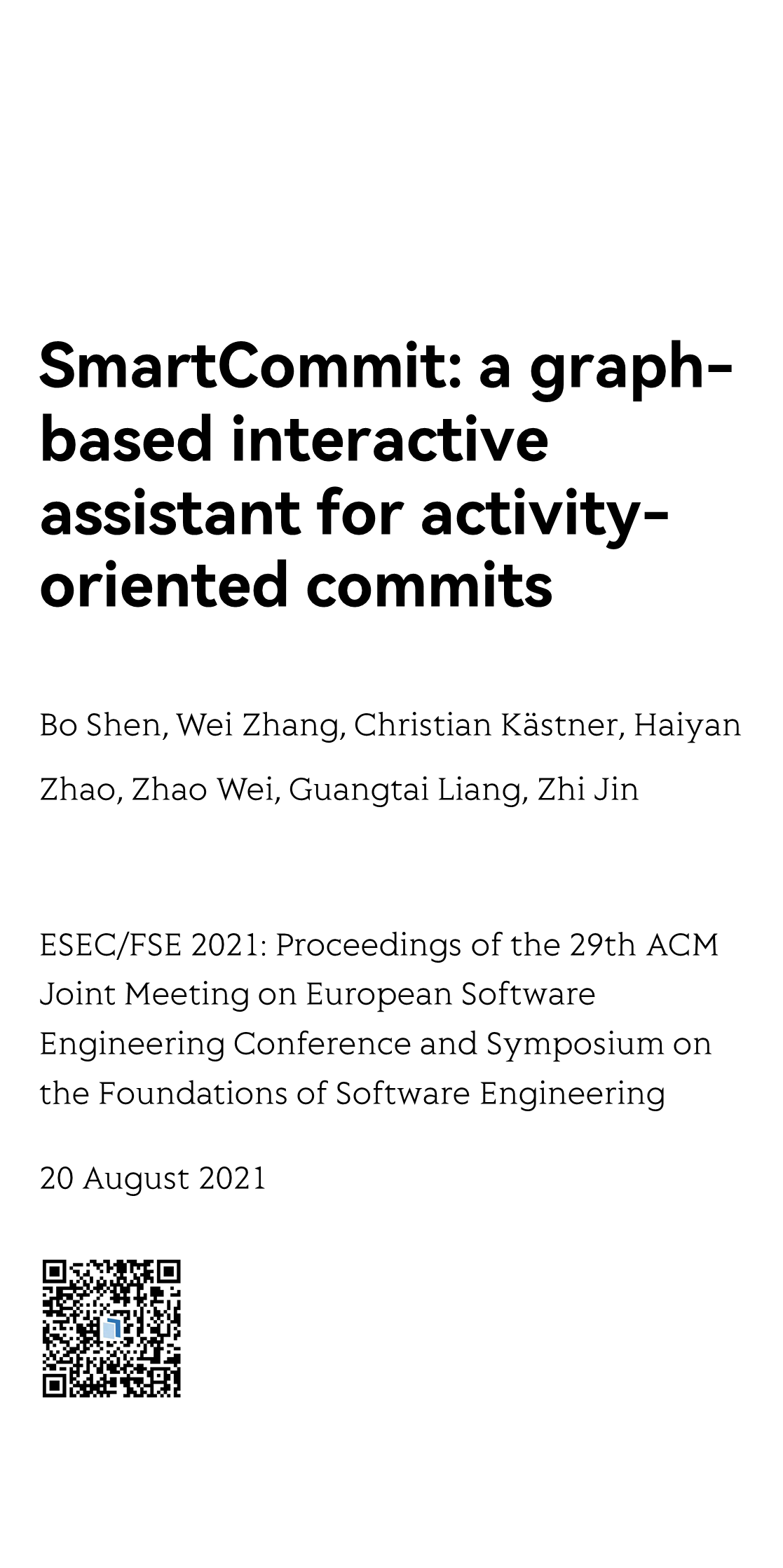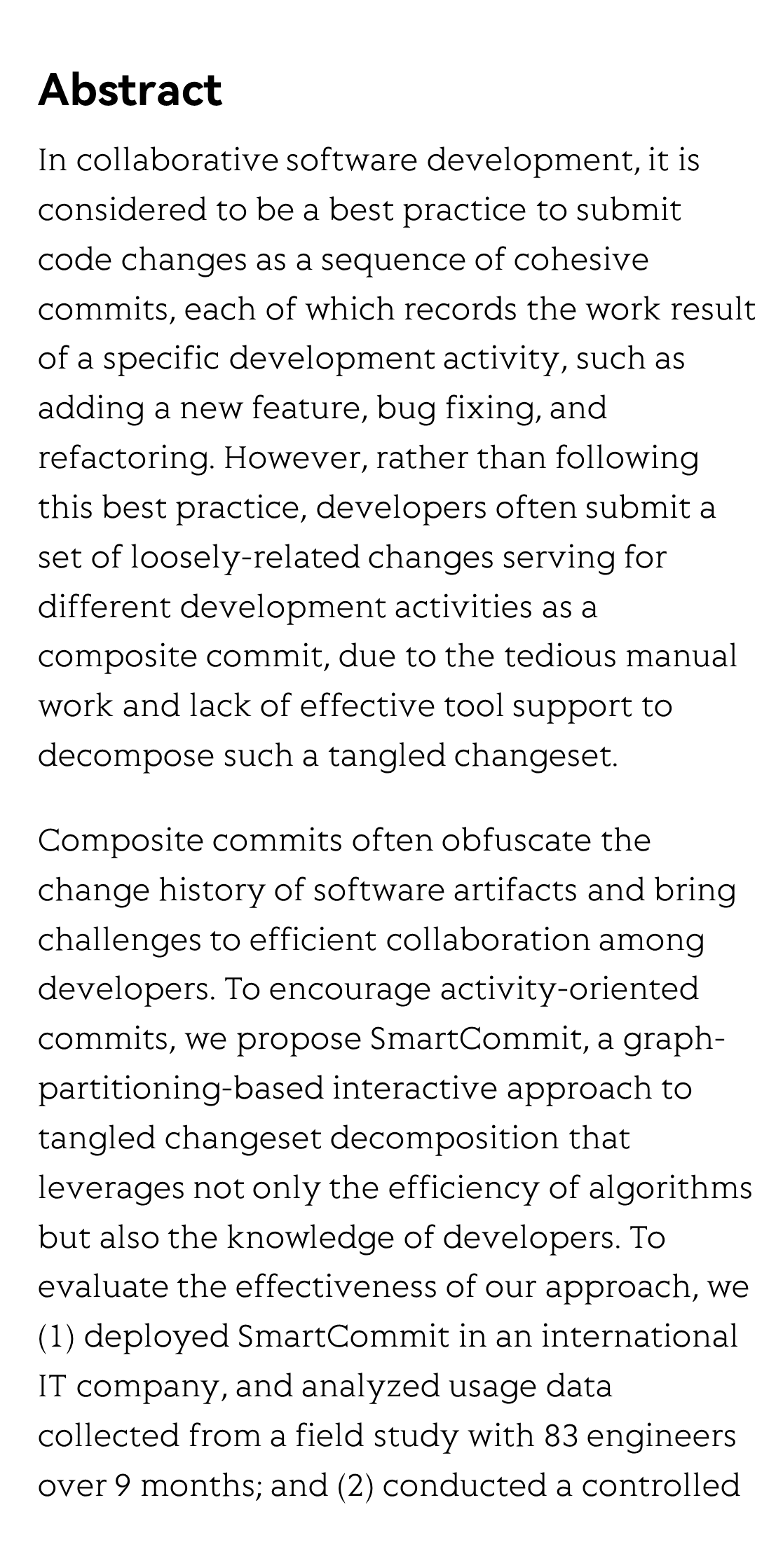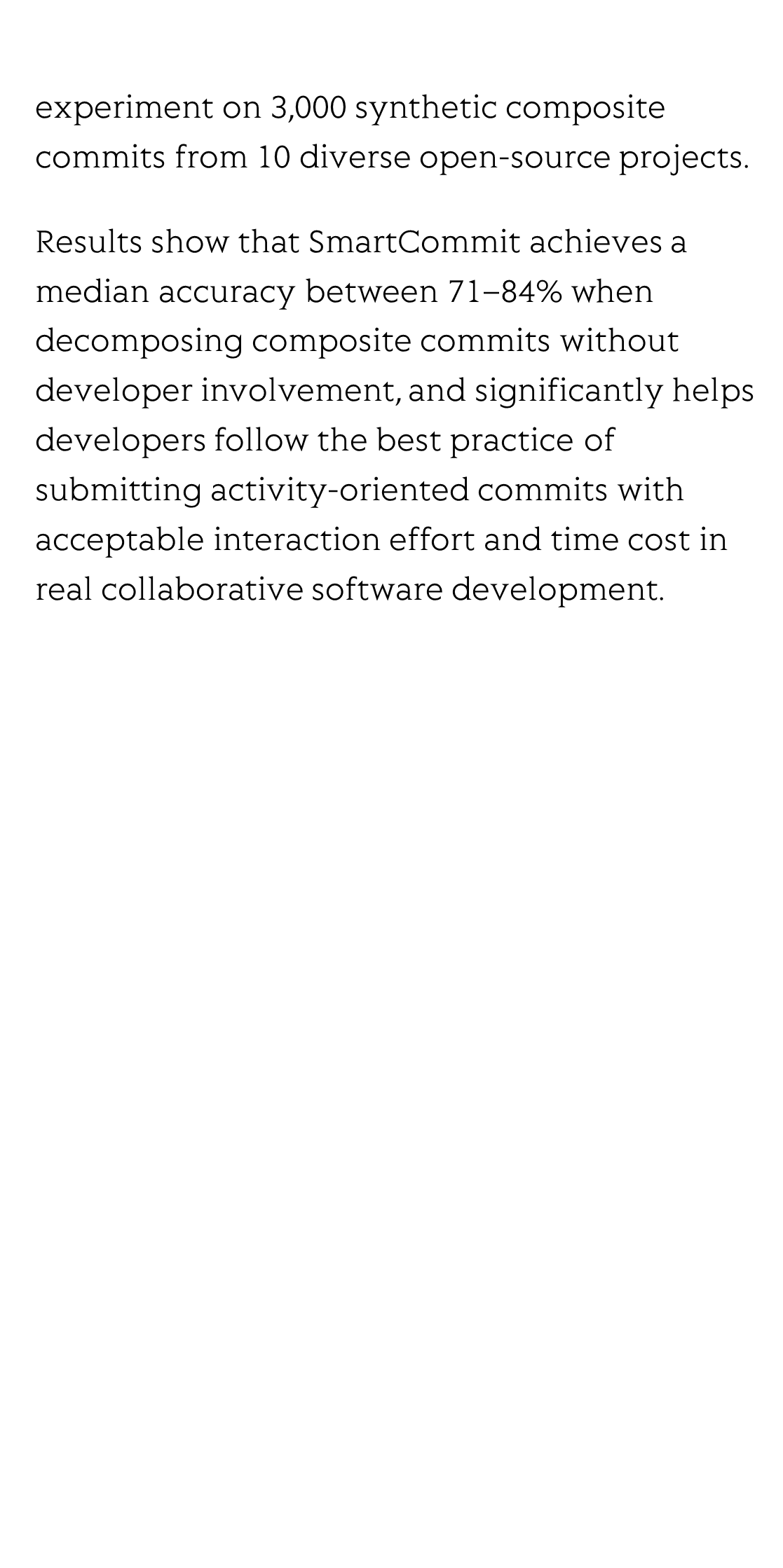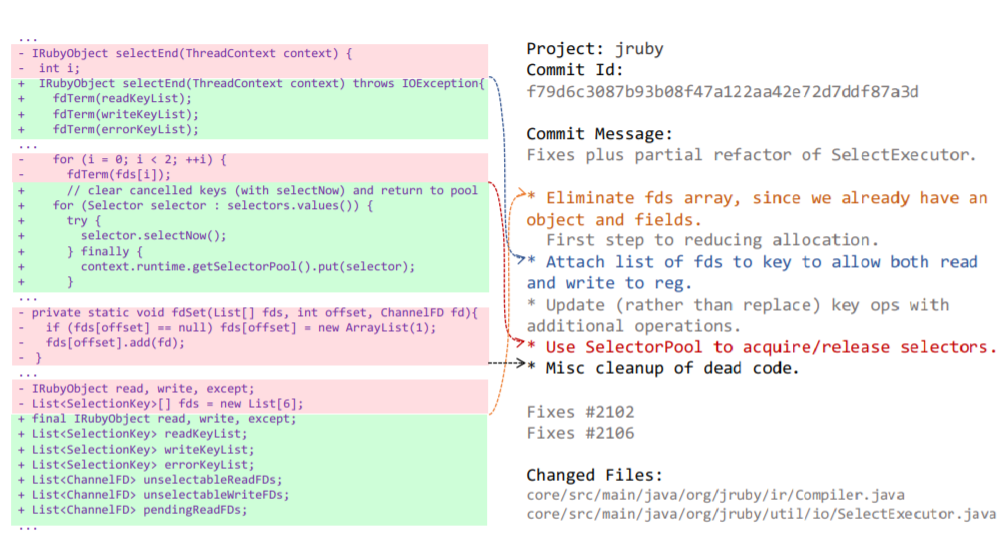(Conference Paper) SmartCommit: a graph-based interactive assistant for activity-oriented commits
Bo Shen 申博 ¹, Wei Zhang 张伟 ¹, Christian Kästner ², Haiyan Zhao 赵海燕 ¹, Zhao Wei ³, Guangtai Liang 梁广泰 ³, Zhi Jin 金芝 ¹
¹ Key Lab of High Confidence Software Technology (Peking University), MoE Beijing, China
中国 北京 高可信软件技术教育部重点实验室(北京大学)
² Carnegie Mellon University Pittsburgh, PA, USA
³ Huawei Technologies Co., Ltd. Beijing, China
中国 北京 华为技术有限公司
ESEC/FSE 2021: Proceedings of the 29th ACM Joint Meeting on European Software Engineering Conference and Symposium on the Foundations of Software Engineering, 2021-08-20
Abstract
In collaborative software development, it is considered to be a best practice to submit code changes as a sequence of cohesive commits, each of which records the work result of a specific development activity, such as adding a new feature, bug fixing, and refactoring. However, rather than following this best practice, developers often submit a set of loosely-related changes serving for different development activities as a composite commit, due to the tedious manual work and lack of effective tool support to decompose such a tangled changeset.
Composite commits often obfuscate the change history of software artifacts and bring challenges to efficient collaboration among developers. To encourage activity-oriented commits, we propose SmartCommit, a graph-partitioning-based interactive approach to tangled changeset decomposition that leverages not only the efficiency of algorithms but also the knowledge of developers. To evaluate the effectiveness of our approach, we (1) deployed SmartCommit in an international IT company, and analyzed usage data collected from a field study with 83 engineers over 9 months; and (2) conducted a controlled experiment on 3,000 synthetic composite commits from 10 diverse open-source projects.
Results show that SmartCommit achieves a median accuracy between 71–84% when decomposing composite commits without developer involvement, and significantly helps developers follow the best practice of submitting activity-oriented commits with acceptable interaction effort and time cost in real collaborative software development.
Separation and identification of mixed signal for distributed acoustic sensor using deep learning
Huaxin Gu, Jingming Zhang, Xingwei Chen, Feihong Yu, Deyu Xu, Shuaiqi Liu, Weihao Lin, Xiaobing Shi, Zixing Huang, Xiongji Yang, Qingchang Hu, Liyang Shao
Opto-Electronic Advances
2025-11-25
A review on optical torques: from engineered light fields to objects
Tao He, Jingyao Zhang, Din Ping Tsai, Junxiao Zhou, Haiyang Huang, Weicheng Yi, Zeyong Wei Yan Zu, Qinghua Song, Zhanshan Wang, Cheng-Wei Qiu, Yuzhi Shi, Xinbin Cheng
Opto-Electronic Science
2025-11-25







